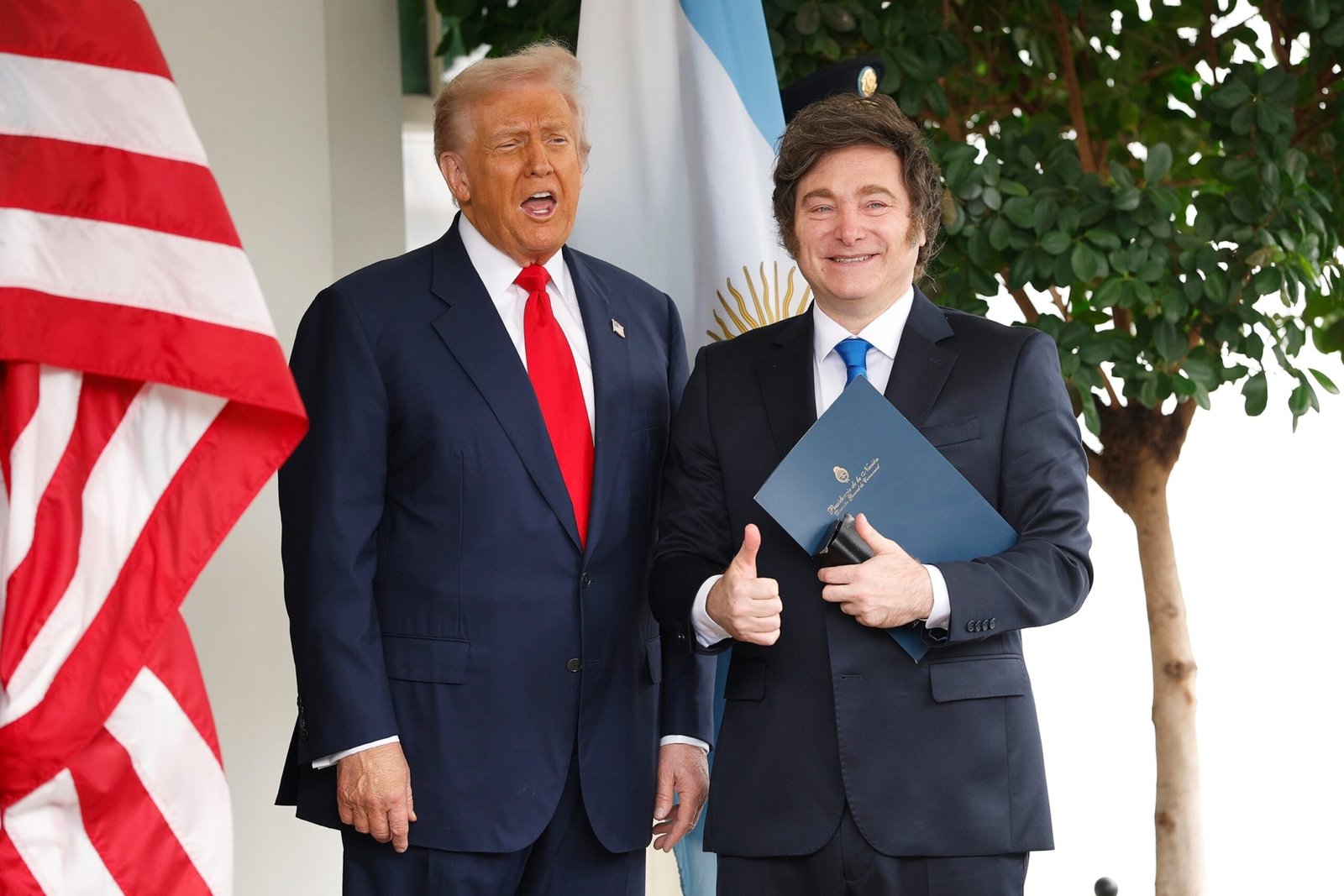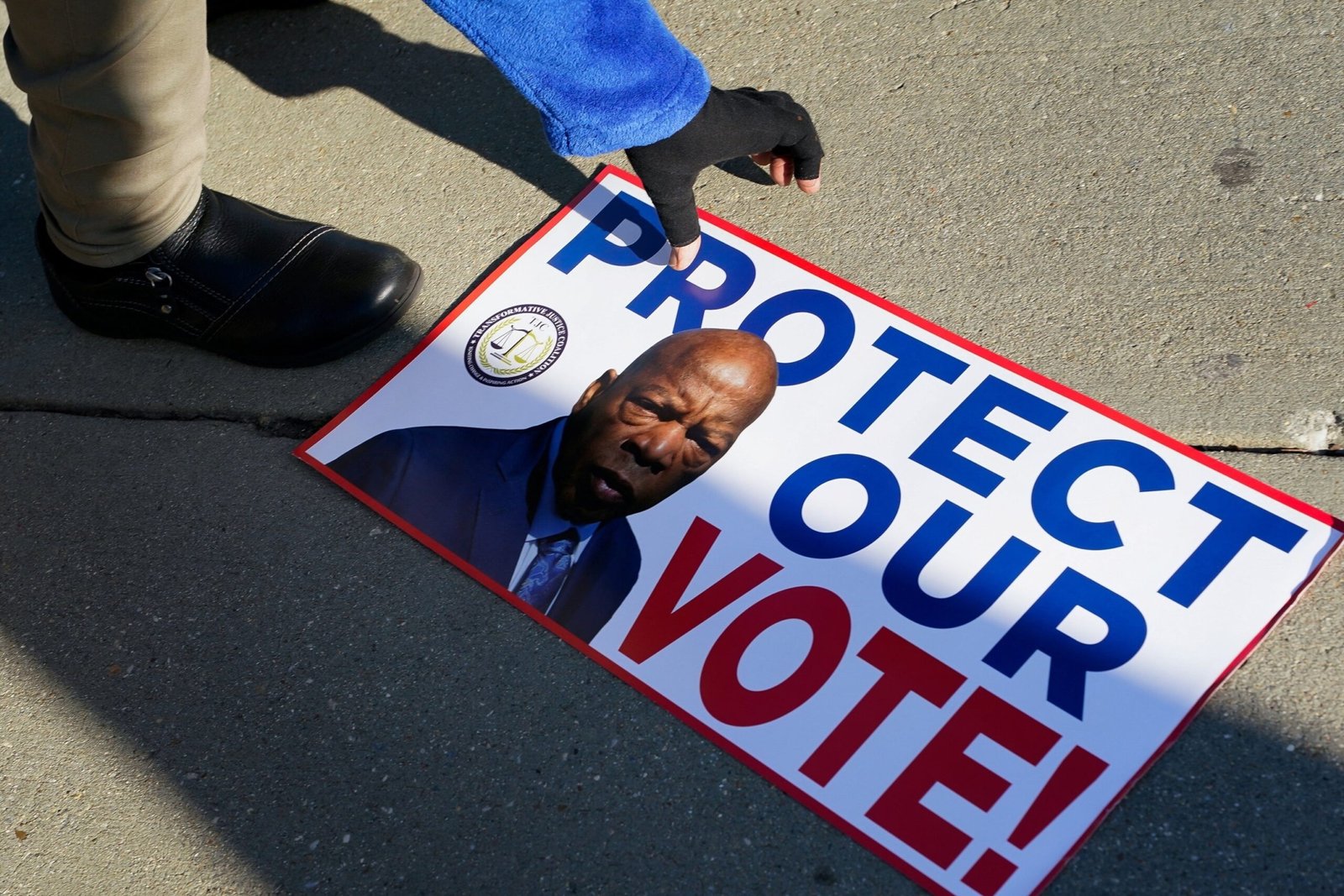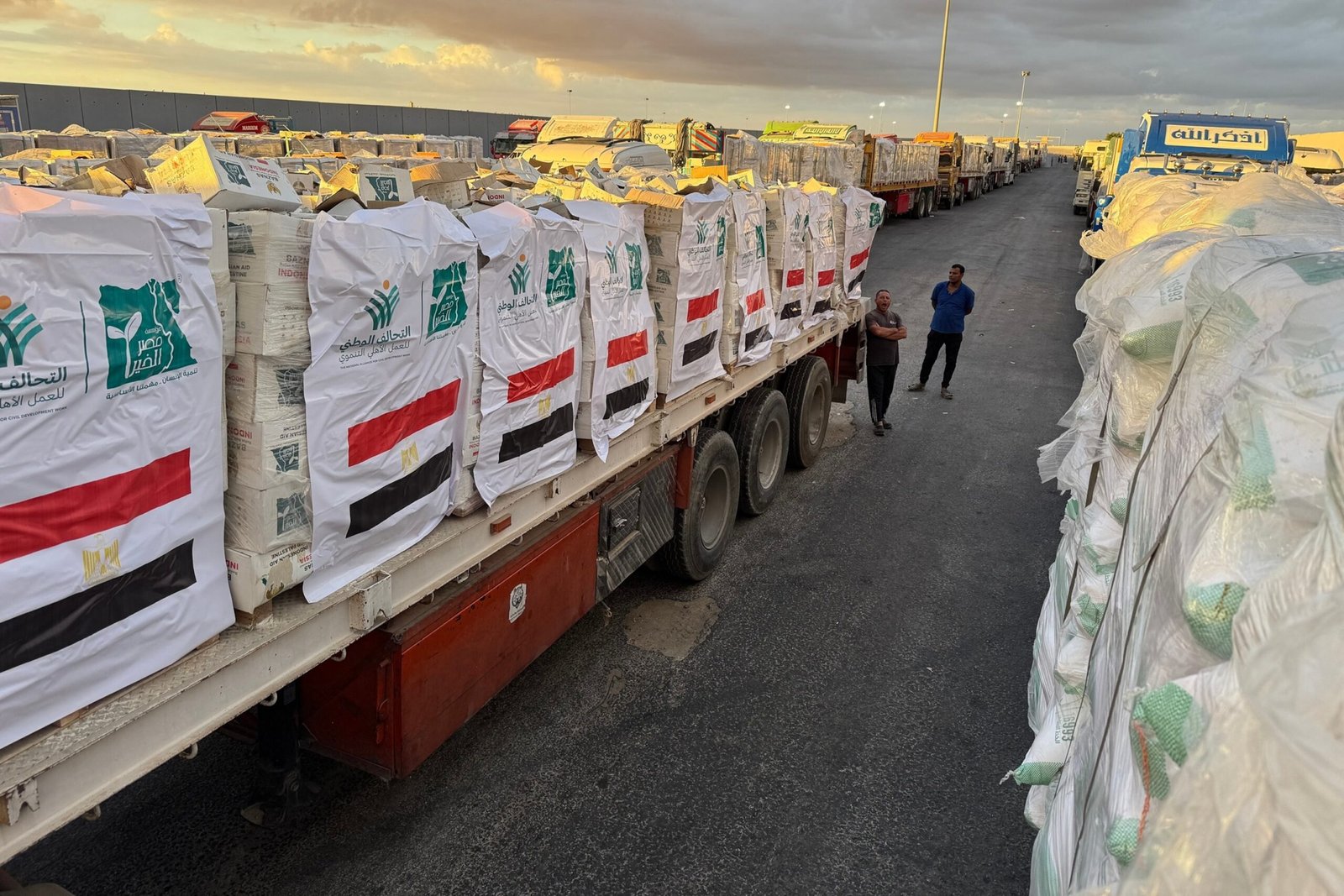President Donald Trump’s $20 billion bailout of the Argentine economy has raised red flags in the United States, especially among American farmers desperate for help facing a crop crisis caused by his trade war with China.
Argentine President Javier Milei met at the White House on Tuesday with Trump and senior U.S. officials, including Treasury Secretary Scott Bessent.
The meeting came nearly a week after Bessent announced a $20 billion financial lifeline that included a currency swap framework with Argentina’s central bank aimed at propping up the Argentine peso.
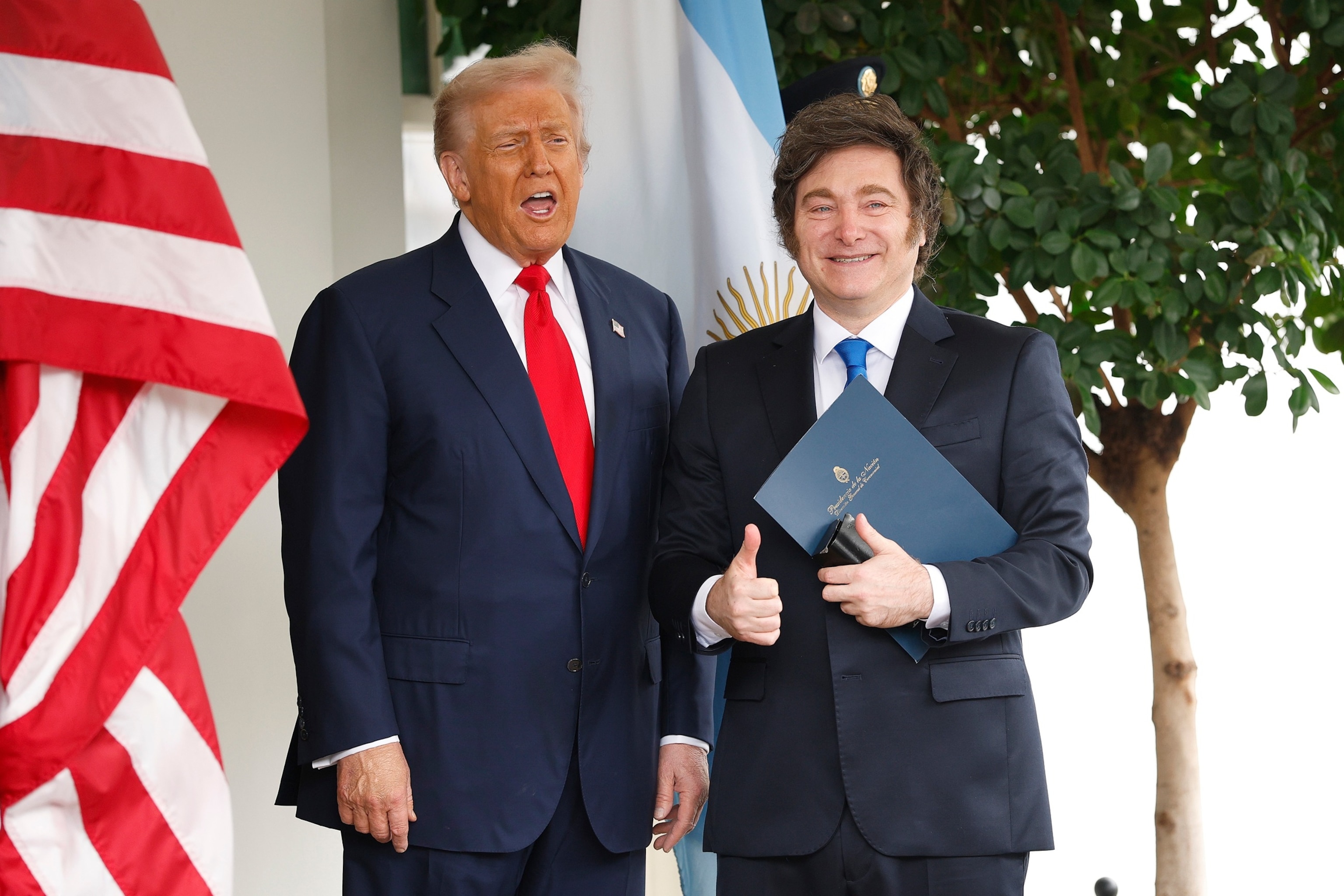
President Donald Trump receives the President of Argentina, Javier Milei, at the White House in Washington, on October 14, 2025.
Kevin Dietsch/Getty Images
“We just want Argentina to do well,” Trump told reporters during the meeting.
Details are still unclear
In an X article last week, Bessent said the United States finalized a $20 billion swap, or loan, line with Argentina’s central bank, where the U.S. Treasury will exchange dollars for pesos.
The expectation, Bessent has said, is that those dollars will eventually be returned.
Bessent also said last week that the United States bought pesos directly, without specifying in what quantity.
The Treasury Department had not released any details about the terms of the swap deal as of Tuesday, and ultimately the dollars it offers Argentina’s central bank are U.S. taxpayer dollars.
“You can call it a bailout, you can call it a bailout, it’s a line of credit for a country that would otherwise be left without reserves,” Brad Setser, a member of the Council on Foreign Relations and former Treasury official, told ABC News.
Bessent has repeatedly denied that the deal is a bailout, saying the United States is supporting the economic reforms of a key South American ally and promoting US strategic interests in the region.
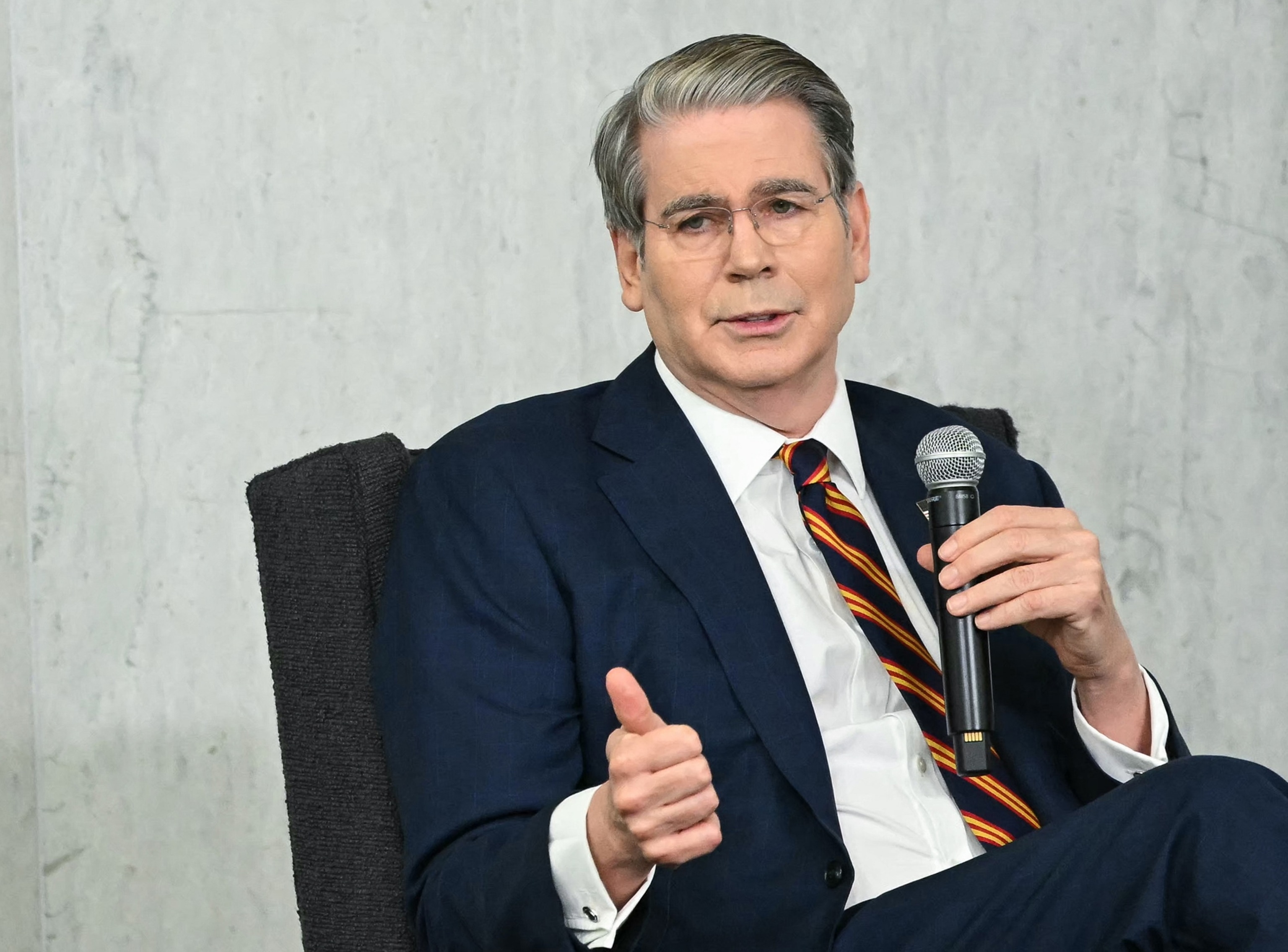
Treasury Secretary Scott Bessent speaks at the Federal Reserve Board Community Banking Conference at Federal Reserve Board headquarters in Washington, Oct. 9, 2025.
Andrew Caballero-Reynolds/AFP via Getty Images
The Treasury Department has not responded to ABC News’ requests for more information about the deal.
Farmers and leaders from both sides speak
The bailout has sparked controversy among farmers, Democrats and some Republicans who question why the United States would commit billions to boost a foreign country’s economy, especially when thousands of American soybean farmers are suffering and need help.
China stopped buying American soybeans amid the trade war with the United States. According to the American Soybean Association, China is the largest buyer of American soybeans and will buy more than 50 percent of American exports in 2023 and 2024.
While some American farmers have said they fear bankruptcies and foreclosures because of their losses, farmers in Argentina and Brazil are increasingly supplying Chinese markets… with soybeans.
Ben Steffen, a Nebraska soybean and corn farmer, who spoke to ABC News from his tractor on Tuesday, said the United States is “rescuing our competitor in the soybean production business.”
“Clearly, people are not happy with the markets and my neighbors are not happy with Argentina’s bailout,” he said.
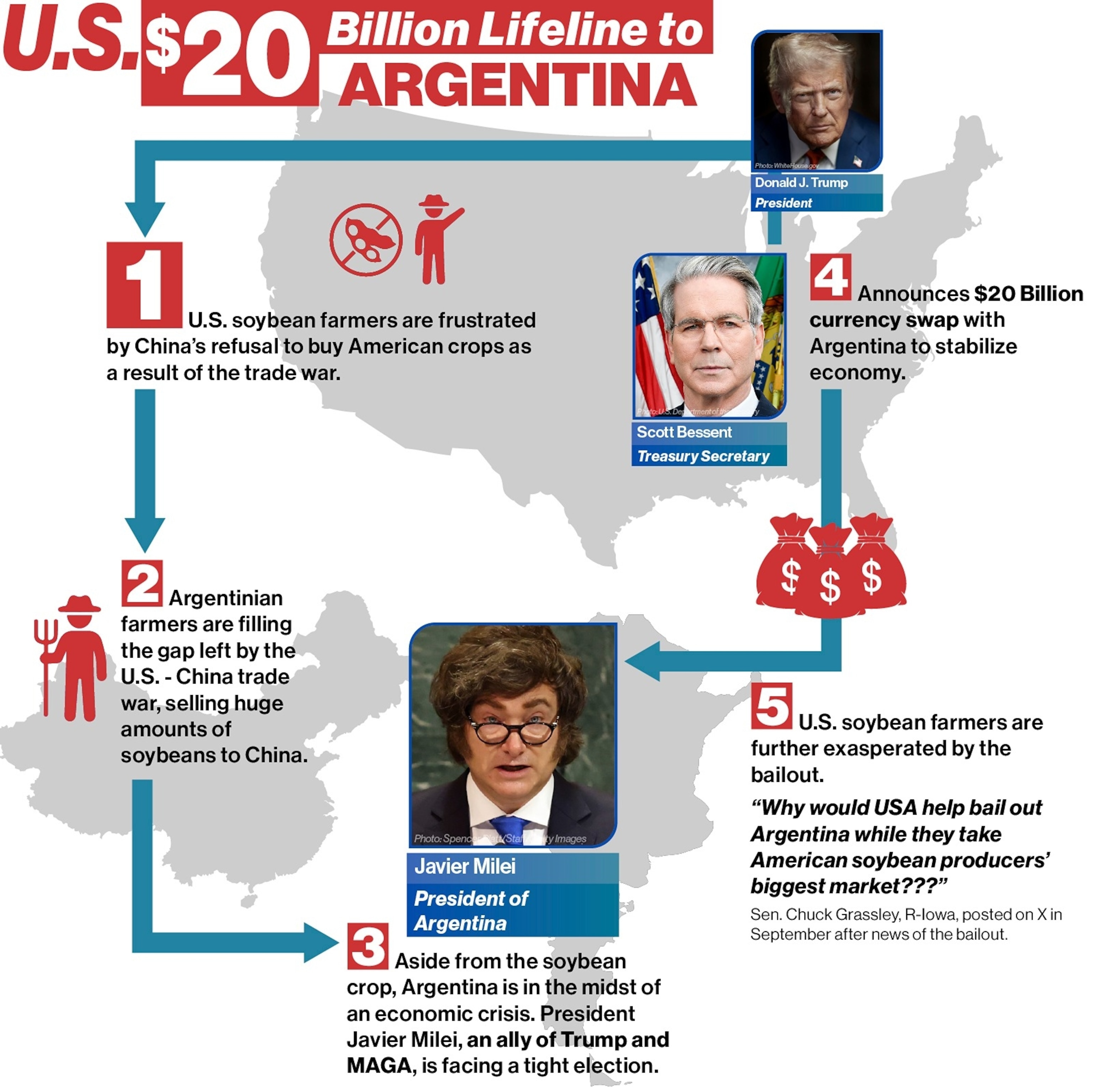
A lifeline of 20,000 million dollars for Argentina
WhiteHouse.gov; United States Department of the Treasury; Spencer Platt/StaffGetty Images
Minnesota farmer Darin Johnson said China’s purchase of soybeans from Argentina has cost the United States leverage in trade negotiations by meeting Chinese demand for the crop.
But he added that many farmers still support Trump, despite any frustrations with some of the administration’s policies.
“We’re going to make this administration believe in good faith that we’re going to get a trade deal, but we’re running out of time,” Johnson said. “Without a little help from this administration, which we still don’t know what’s going on, there’s still a lot of uncertainty.”
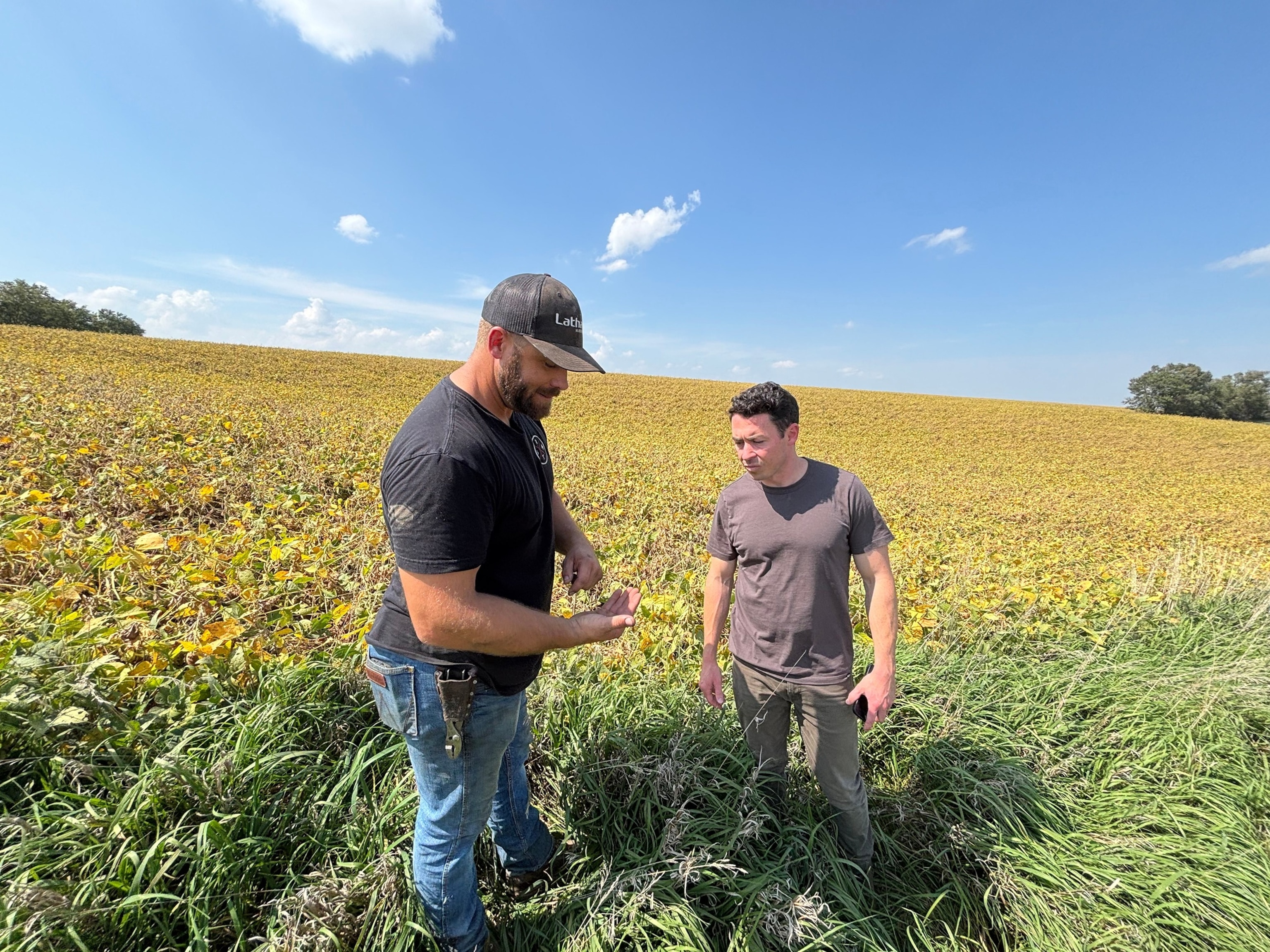
Farmer Scott Thomsen, pictured here with ABC’s Matt Rivers, is preparing for the fall soybean harvest in eastern Nebraska.
Ben Siegel and Matt Rivers/ABC News
Ryan Marquardt, an Iowa farmer, told ABC News on Tuesday that the bailout for Argentina appears to go against Trump’s vision of “America First.”
“It feels like you’re propping up your competition. It seems contrary to the ideology of America first,” he said. “I don’t see anywhere we come out ahead of that transaction.”
Democrats have accused the White House of neglecting farmers and other Americans at a time of economic turmoil and uncertainty.
“The truth is clear: Trump put America second, bailing out another country and abandoning American farmers,” the Democratic National Committee said in a news release Monday.
Iowa Republican Sen. Chuck Grassley also criticized the administration’s priorities in an X post last month, as news of the Argentina deal circulated.
“Why would the US help bail out Argentina while they take over the biggest market from US soybean producers?” he said. “We must use leverage at all times to help the hurting agricultural economy. Family farmers must be a priority in negotiations by US representatives.”
The president of the American Soybean Association, Kentucky farmer Caleb Ragland, said in a statement in September that the “frustration” with the Trump administration was “overwhelming.”
“US soybean prices are falling, the harvest is underway and farmers are reading headlines not about securing a trade deal with China, but that the US government is extending $20 billion in economic support to Argentina as that country eliminates its soybean export taxes to sell 20 shipments of Argentine soybeans to China in just two days,” Ragland said.
“The agricultural economy is suffering as our competitors replace the United States in the world’s largest soybean import market,” he added.
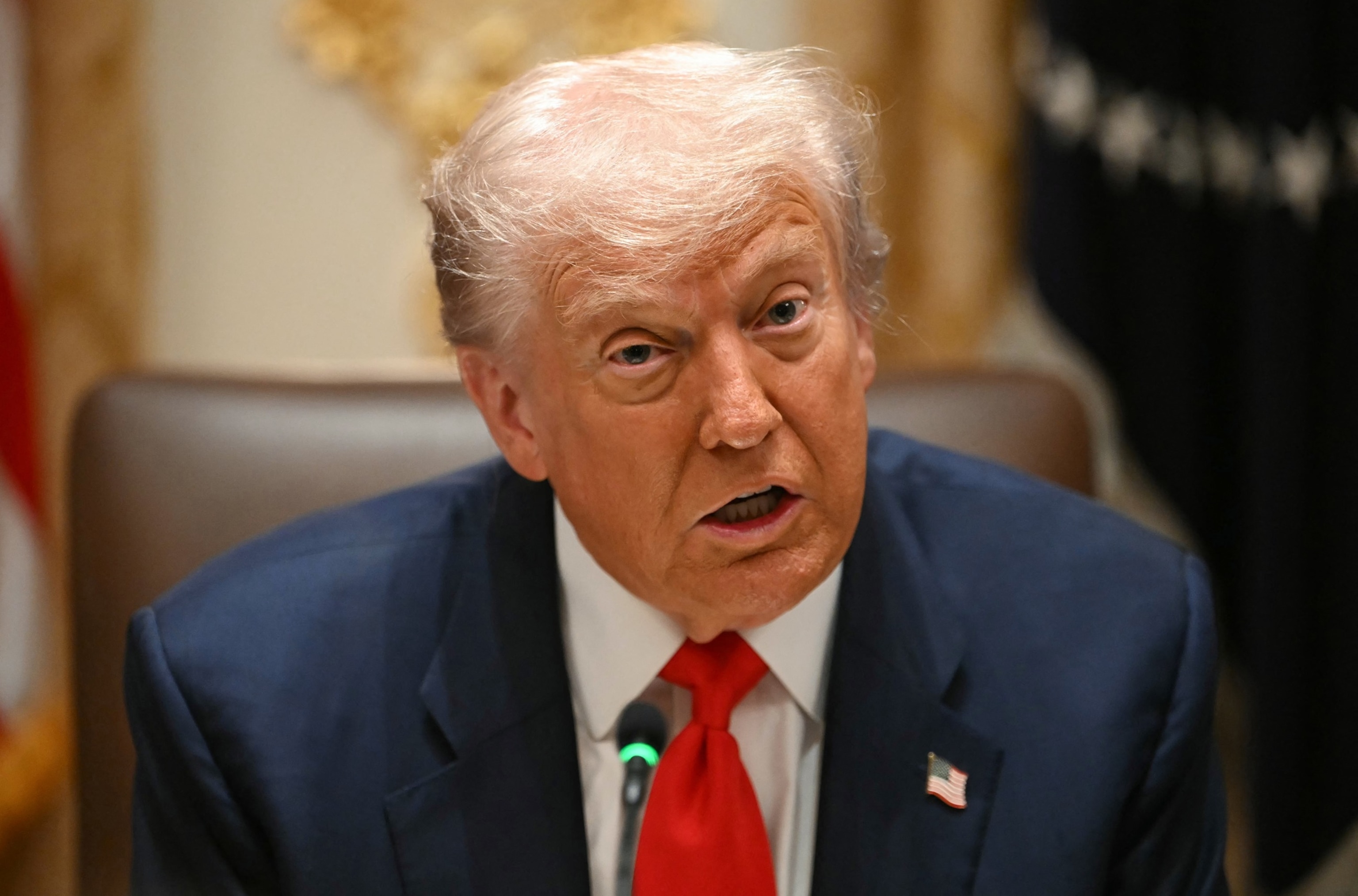
President Donald Trump speaks during a meeting with the President of Argentina, Javier Milei, at the White House in Washington, October 14, 2025.
Andrew Caballero-Reynolds/AFP via Getty Images
Trump has promised to help soybean farmers, saying at one point that money from tariffs would be used to help them financially, but as of Tuesday no such proposal had been formalized.
The administration has blamed the current federal government shutdown for delaying the release of a relief package.
The president has also asked China to buy American soybeans, without success.
“President Trump has pledged to put American farmers first, and every historic trade deal his administration has signed with the EU, Japan and others includes unprecedented provisions to expand American agricultural exports,” White House spokesman Kush Desai said in a statement to ABC News.
“The Administration continues to fight for American farmers in trade negotiations, and also remains committed to using tariff revenues to support farmers left in the lurch due to unfair foreign trade practices,” he added.
Trump says deal helps conservative South American ally ahead of election
The Argentine bailout comes at a politically crucial time for its controversial president.
Milei has made headlines for his libertarian beliefs and has frequently been seen with conservative leaders and figures, including Elon Musk, whom he joined at this year’s CPAC and gifted him with what became a famous mock chainsaw, praising Musk’s DOGE cuts.

In this Feb. 20, 2025 file photo, Elon Musk holds a chainsaw next to Argentine President Javier Milei during the annual Conservative Political Action Conference (CPAC) at the Gaylord National Resort & Convention Center at National Harbor in Oxon Hill, Maryland.
Saul Loeb/AFP via Getty Images, FILE
Trump has frequently praised Milei and endorsed his leadership, praising his right-wing cost-cutting agenda in Argentina.
“You have a great leader,” Trump told reporters just before his meeting with Milei on Tuesday.
However, the 55-year-old faces serious competition in Argentina’s October 26 election as he has suffered rising disapproval ratings in recent months, according to Reuters.
The US agreement seeks to stabilize the peso just as Argentine voters go to the polls.
“We’re helping a great philosophy take over a great country… we want it to succeed,” Trump said Tuesday, adding that if Milei succeeds, other South American countries could follow suit politically.
Trump later said the currency swap depends on Milei’s success during the country’s upcoming elections.
“If they lose, we’re not going to be generous to Argentina,” Trump said. “If he doesn’t win, we’re leaving.” said.
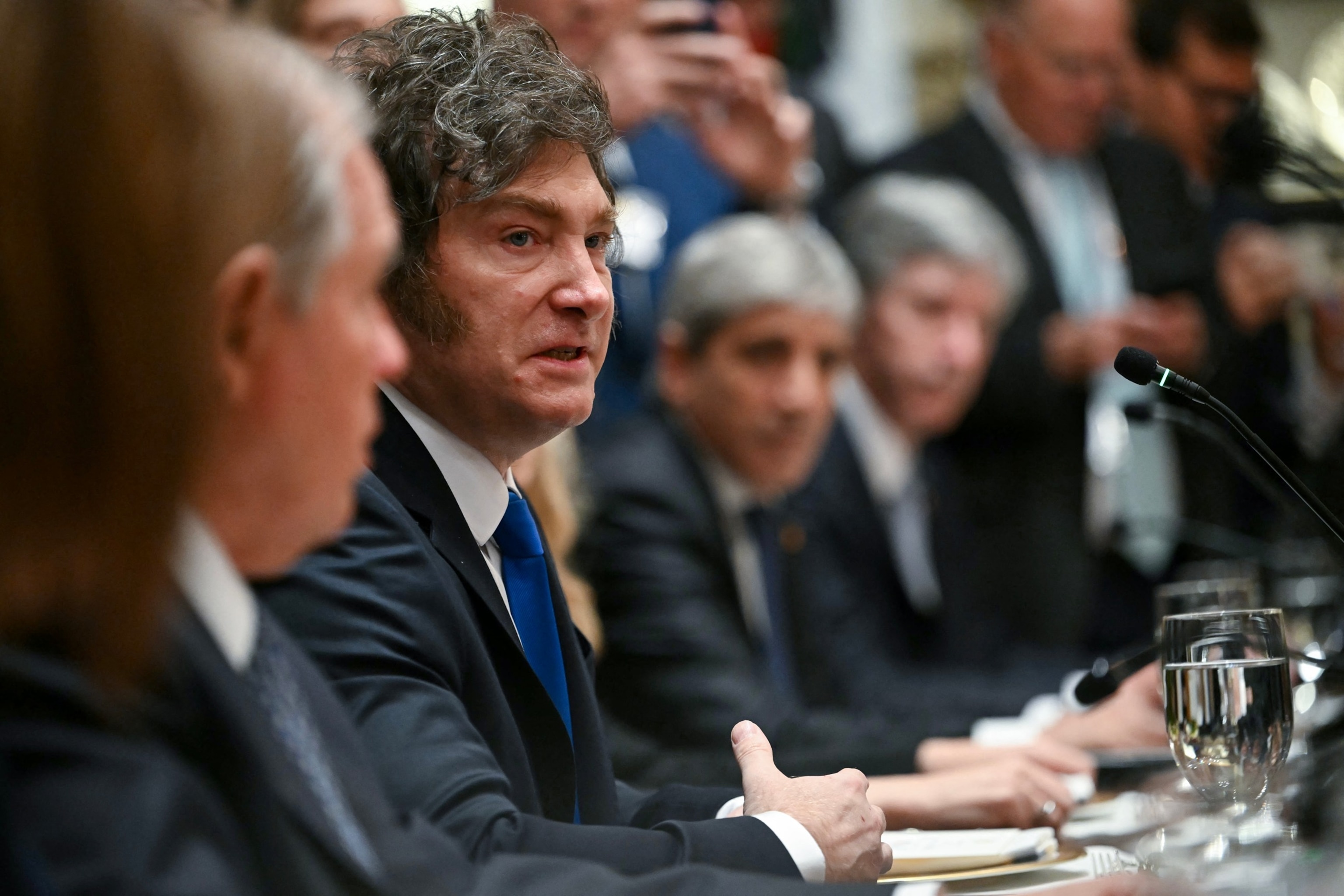
Argentina’s President Javier Milei speaks during a meeting with President Donald Trump in the Cabinet Room of the White House in Washington, October 14, 2025.
Andrew Caballero-Reynolds/AFP via Getty Images
Trump said “no” when asked if the currency swap was an “America First” policy, if it was just to help Milei in the upcoming election.
Bessent echoed the president’s sentiment Tuesday, stating that the United States is using its economic strength to create peace in South America.
“It’s hope for the future,” Bessent said. “I believe that with the bridge that the United States is giving them and with strong policies, Argentina can become great again.”
Bessent’s financial colleagues come under scrutiny
Bessent has also been in the hot seat over Argentina’s ties to some of his former colleagues in the financial world.
Rob Citrone, a billionaire who once worked with Bessent, has major investments in Latin America and Argentina, according to SEC Filings.
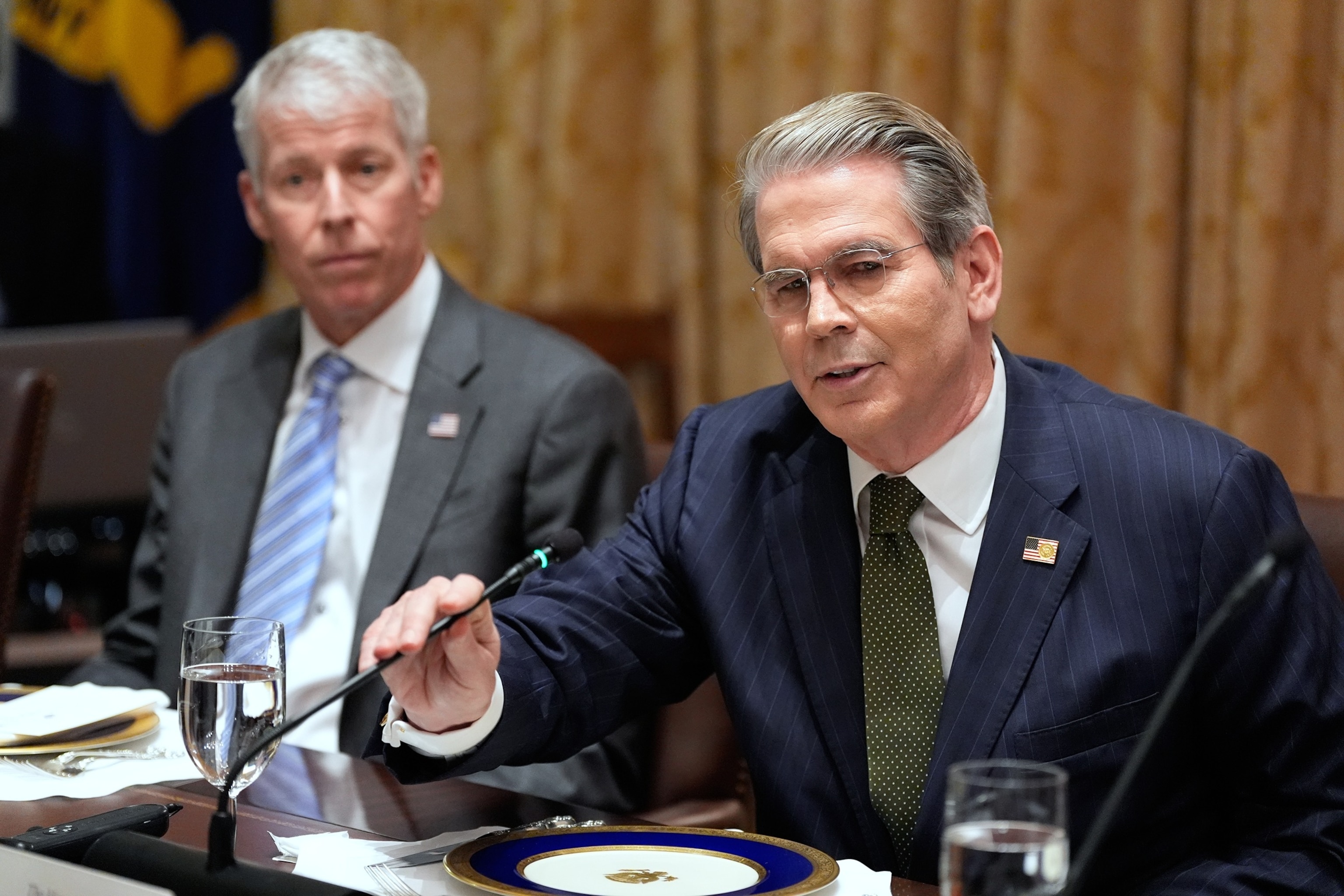
Treasury Secretary Scott Bessent and Energy Secretary Chris Wright attend a meeting with President Donald Trump and Argentine President Javier Milei in the Cabinet Room of the White House, Oct. 14, 2025, in Washington.
Alex Brandon/AP
A spokesperson for Citrone and Discovery Capital Management, its hedge fund, declined to comment to ABC News.
Billionaire Stanley Druckenmiller, an old friend of Bessent, has said publicly that he invested in Argentina after Milei’s election. Druckenmiller did not immediately return messages to ABC News seeking comment.
The Treasury Department did not respond to a message seeking comment on reports that Bessent had discussed Argentina with Citrone, or additional requests for comment on the deal.
Bessent denied that the deal had any connection to his financial colleagues in an interview with CNBC last week, where he said that “the idea that we are helping wealthy Americans with interests there couldn’t be more false.”
“What we are doing is maintaining the strategic interest of the United States in the Western Hemisphere,” he added.
-ABC News’ Isabella Murray and Fritz Farrow contributed to this report.

